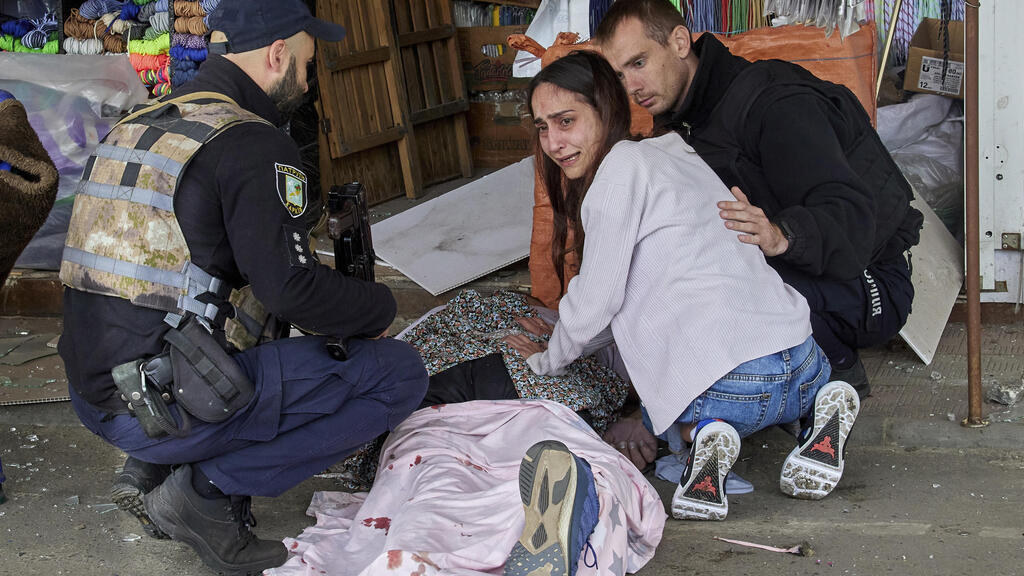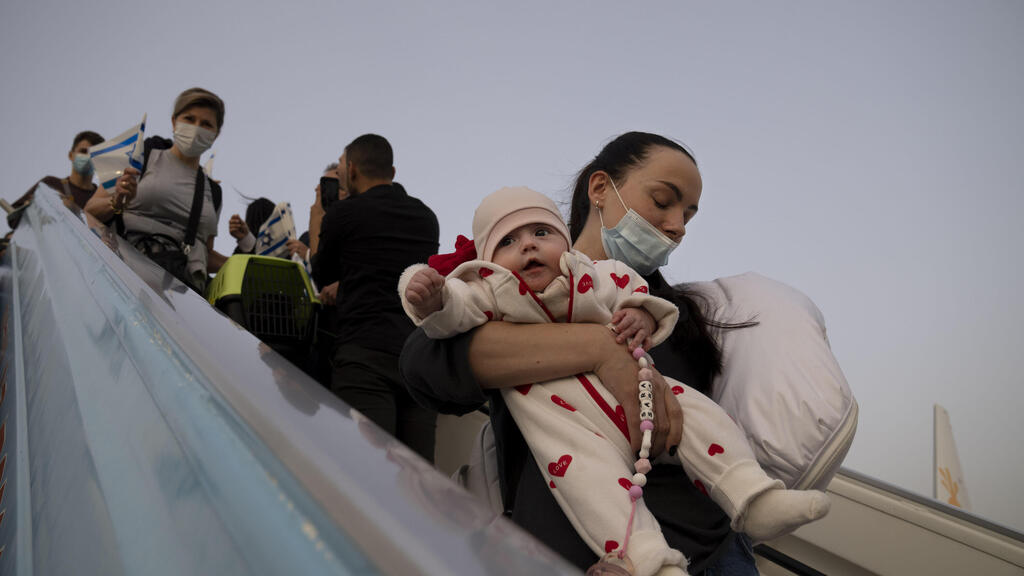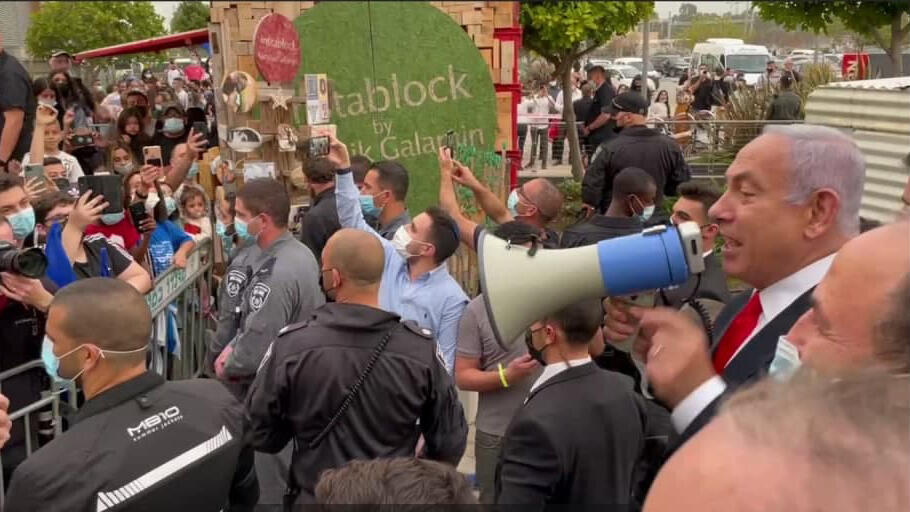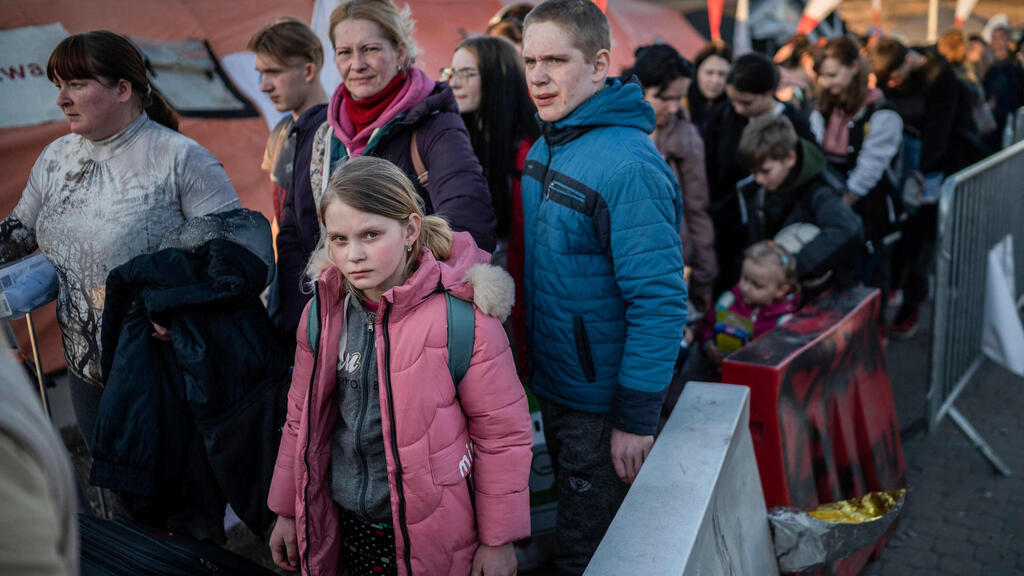Getting your Trinity Audio player ready...
For many, the daily call to mom is a usual routine of questions about the kids, work and some mundane gossip. For me, the daily call to my mother, who made Aliyah from Ukraine soon after the Russian invasion, begins with a rundown of the latest casualties in her home town of Kharkiv.
She makes it a point to tell me how many of the killed were children and where exactly the bombs fell.
4 View gallery


Policemen calm a woman by the body of her killed husband following a Russian rocket strike hitting a bus stop near a market in Kharkiv, Ukraine, last week
(Photo: EPA)
My heart aches listening to her. Those are the streets of my childhood, where I was born and lived until the age of 17.
Powerful air and ground missile strikes targeted Ukrainian cities as Russian tanks advanced on the capital of Kyiv. A fifth of the country is currently occupied by the Russian forces and Ukraine's major urban areas are under heavy bombardments on a daily basis. According to UN figures, some five million civilians have fled the fighting and were now refugees.
Initially, the Israeli media covered the war non-stop in an effort to convey its horrors. "War in the heart of Europe," the headlines read.
But as the time went on, the story began disappearing from the front pages and was slowly replaced by domestic affairs, such as elections and the rising cost of living, among other issues.
The war in Ukraine may be absent from news coverage in Israel, but it will definitely have an effect on the outcome of the November 1 ballot as part of the political parties' fight over the "Russian-speaking" vote.
For many immigrants from former Soviet Union, the war is a source of pain and concern. Many have family and friends in the line of fire. Many "old-time immigrants" like me had to extract relatives from the war in a rush and provide them with a roof over their heads.
Others dropped everything and went to Ukraine to assist those stranded there. Many also continue to collect and send needed supplies to the warzone from Israel.
Some 30,000 immigrants arrived from Ukraine and Russia since the fighting began – just shy of a Knesset seat. They join many others, who arrived since Putin took power and since his invasion of Crimea in 2014. In total – they number some 150,000.
4 View gallery


Immigrants from Ukraine arrive in Israel in the midst of the war earlier this year
(Photo: AP)
Among Russian-speaking Israelis who made Aliyah in the 1990s, the support for Ukraine and criticism of Russian policies is a matter of consensus. A review of social media posts and large demonstrations across Israel, calling for an end to the Russian atrocities, is proof of that. In contrast, no more than 150 people came out to support Russia when a similar protest was staged.
Russian-speaking voters, who constitute 12.5% of the population, now add the war in Ukraine to the matters concerning them most, which include the cost of living, pensions, the security situation and matters of religion and state.
If I were running a political campaign, I would attempt to enlist those voters' support and rate the war high up among issues on the agenda, rather than ignoring the pain so many of them experience.
4 View gallery


Benjamin Netanyahu campaigns in Ashdod, home to many Russian-speaking Israelis, before 2021 elections
This is no time to remain on the fence and parties should step out of their comfort zone, clearly stating that what is being done in Ukraine is a disaster.
Ambiguity must not continue, and the time for friendly embraces with the Russian regime must come to an end.
The Russian-speaking voters are expecting to hear not only what Israel thinks, but also what it is willing to do in support of Ukraine along with others in the West. Avoiding the matter will result in a loss of the "Russian" vote. No matter where those voters originated from and how long ago they arrived.
Unlike politicians, the immigrants will not ignore this terrible war.
Katya Kupchik is a communications consultant and a social activist


